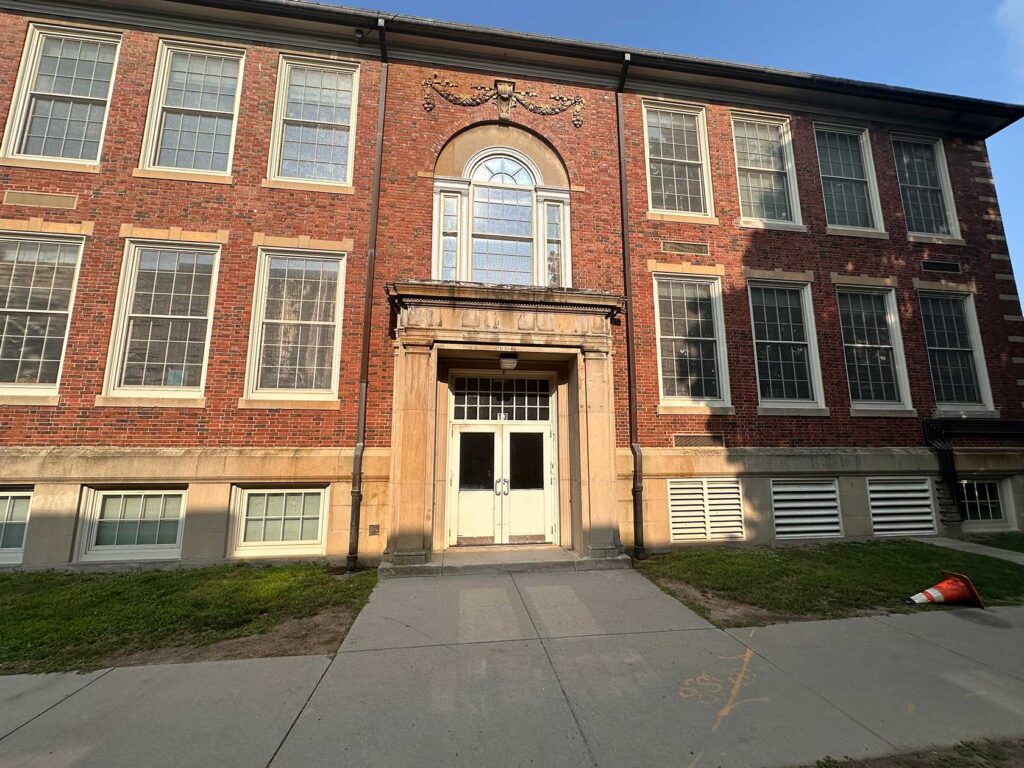Lawyers for Civil Rights file complaint against Brookline Public Schools
Allege failure to address racial bullying of Black eighth grader

“A Black eighth grader … was subjected to racial bullying,” read a press release from the Lawyers for Civil Rights last week. It represented the latest salvo from the crusading pro-bono attorneys who originated the suit desegregating Boston’s public schools a half-century ago.
Their targets of late have been school districts with METCO.
LCR’s civil rights complaint alleges that a “delayed response and failure to address” multiple incidents of race-based harassment and traumatic violence constituted a violation of the public schools’ obligations under Title VI of the Civil Rights Act of 1964.
In the worst instance at the K-8 school, the student, MC Henry, was pinned to the floor by a knee on their neck while the other eighth-grader repeated “George Floyd!”
The re-enactment culminated a school year in which MC had been called a “cotton picker.” The family will unenroll from the Public Schools of Brookline.
Along with other METCO students, MC was bused to the suburb daily, crossing a chasm of economic inequality so vast it is visible in satellite photos.
This was not one more expression of racial domination, though examples abound today. The other eighth-grader was not one of America’s mainstream. Their parents do not speak English.
And, arguably, it was group thinking that led here in the first place.
“In 2024,” said LCR’s Mirian Albert, Esq., “you would think that any reenactment of George Floyd’s murder in a school could clearly constitute an example of severe racial intimidation.” But, she said, “that wasn’t the case here.”
Albert’s complaint critiques the disciplinary response of the district, “the only step they did take — to tell the perpetrator to apologize — was exceedingly minimal and arguably harmful. A forced “apology” trivialized the severity of racial bullying, suggesting that the harm is minor, and that the victim is at fault if they do not immediately forgive the conduct.”
Restitution requested includes a policy review, affirmation of the alleged violation, a reporting process for future incidents, a new anti-bullying policy and reimbursement for therapy for MC.
LCR, formerly known as The Lawyers’ Committee for Civil Rights Under Law of the Boston Bar, publicized a model anti-bullying policy in April. It proposes categorizing prohibited conduct alongside disciplinary options and encoding a prohibition on “identity-based bullying” that would incorporate gender-identity into traditionally protected populations. MC goes by they/them.
“If Public Schools of Brookline or the Lawrence School did have a policy on their books similar to the model policy,” argued Albert, “the Henry’s would have had a better experience and definitely MC would have had a better experience after all these incidences occurred.”
Brookline’s school board chair, Andy Liu, pledged to revisit procedures for incident reporting.
“Racism and discrimination run contrary to the values of our school district,” wrote Superintendent Linus Gillory, Ph.D. Just learning of the incidents recently, Liu said a fact-finding inquiry is underway. Policy may not be the answer to solving the problem. The behavior was already prohibited.
Brookline’s anti-bullying and anti-harassment policies protect populations based on race and gender-identity. And LCR’s model policy recommends apologies for some conduct.
Distinguishing an apology from a “meaningful response,” Albert said, “the perpetrator doesn’t learn the harm that was inflicted and there’s really no reassurance that it won’t happen again.”
The legal filing’s formal distinction between perpetrator and victim mirrors the discourse of oppression. Such labels cannot apply to children.
Public schools with METCO programs educate student populations from different backgrounds and economic circumstances. Student identities are multifaceted; groups are not distinct. Factors like religious affiliation, neighborhood or youth-sport team can establish bonds across categories.
Unquestionably, intense solidarity forms among METCO students on the predawn bus ride from city to suburb. Not race-based, these ties do not automatically extend to suburban minorities, leaving them othered by multiple peer groups. Such social complexity may help explain how the horror of George Floyd’s murder could echo in an affluent and progressive suburb of Boston.
Teenage logic is fundamentally a question of group-acceptance. A child of immigrants finishing primary school craves acceptance by their peers. If that child imagines the oppression of Blacks, as in the murder of George Floyd, as a commonality with suburban whites, that signals a failure to make sense of the violent spectacle.
“It’s certainly been discussed,” said Liu, “but, no, I would not say anybody has made sense of such traumatic events.
In 2020, social justice advocates rallied to the vivid injustices of slain citizens like George Floyd, Sandra Bland, Eric Garner and Trayvon Martin. Detractors in our long-standing cultural clash pushed back. The resulting narrative was over simplified: us-versus-them.
For Albert, public schools with METCO programs must be held to a higher standard to protect students. Community discussion, she said, could improve the culture. “Schools can’t just leave it in the hands of METCO to make sure these students are safe and thriving,” she said. The complaint isn’t intended to hold the perpetrator to account, she said, “the school is the one that has the moral and legal duty to protect students from discrimination and bullying.”
“The school committee takes very seriously,” Liu said, “our responsibility to have a school environment where all our students feel welcome and supported. And we have work to do.”






